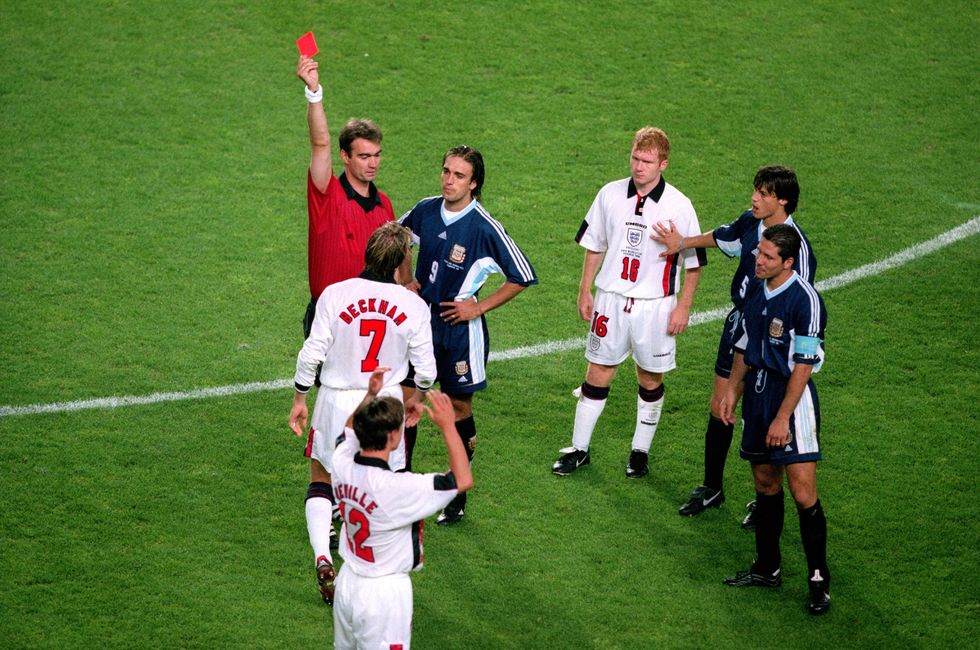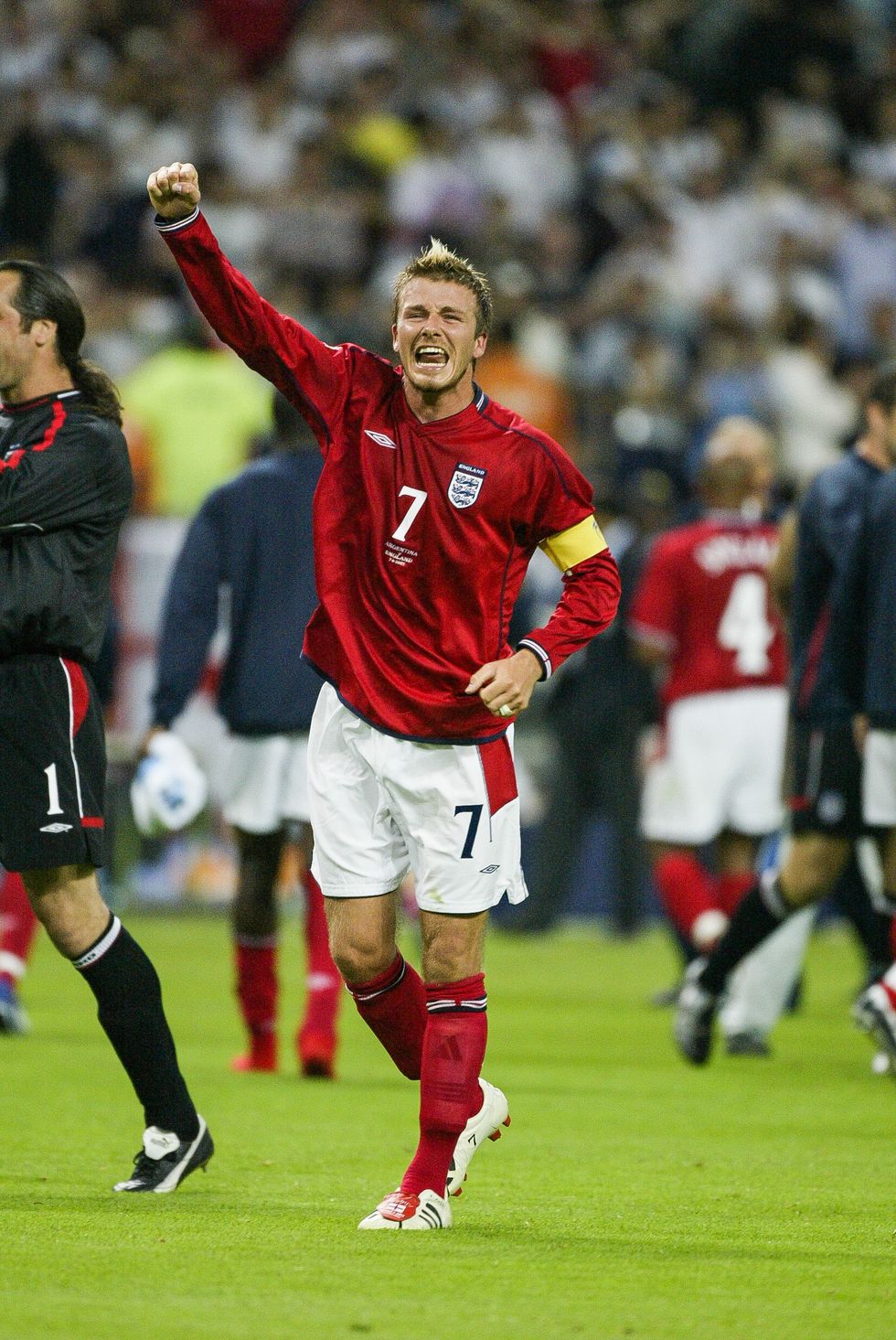David Beckham compared to a dog after new Netflix documentary
David Beckham's four-episode Netflix documentary has been streamed by millions around the world
The former Manchester United star was candid and open during the new series
Don't Miss
Most Read
Trending on GB News
David Beckham has been compared to a dog by a body language expert after discussing his infamous red card for England against Argentina in 1998 on his new Netflix documentary.
The former Three Lions star was candidly honest as he talked about one of the worst moments of his career.
England were hoping to beat Argentina 25 years ago and win the World Cup for the first time since 1966.
But they ended up losing that showdown on penalties, with Beckham seeing red for a kick at Diego Simeone.

David Beckham saw red as England lost to Argentina at the 1998 World Cup
GETTY
Body Language expert Inbaal Honigman has dissected the moment Beckham trudges off the field, which is shown in the documentary.
And she says the former England star was 'like a like a dog hanging his head' in the immediate aftermath.
“All we have from him there is absolute devastation," Honigman told Slots Judge.
"He stands his ground for just a couple of seconds. That's a little moment of denial.
"He's not moving, he's not responding, he's not contesting it, he's just processing what had happened and then he turns around and walks as fast as he can walk without running.
"His adrenaline's kicked in, but his face is totally fallen. We have almost no expression at all.
“He doesn't even know how he feels, except for the fact that he looks like he's on the verge of tears.
"I would say it's more disbelief than anything else and the devastation, to me, it looks like he's thinking this is it, life is over. This is something I'll never recover from.
“After he takes his shirt out of his pants, he thinks ‘I'm done here’ and after he looks back, which says did this actually happen?
"He does bite his lips very lightly and that is a reluctance to have to say anything to anybody and not wanting to speak.
“Then, he lowers his head just before the people get to him and put their hand on him, and that lowering of the head is either fearing retribution from Glenn Hoddle or expecting a consequence like a like a dog hanging his head.”
Beckham would get his revenge on Argentina four years later.
England were drawn against their old rivals in the group stages of the 2002 World Cup.
The Three Lions went into the game knowing they needed to win after drawing with Sweden in their opening match.
And Beckham scored the only goal of the game from the penalty spot to spark wild celebrations back home.
Also in the documentary, Beckham talks about his OCD and how it has impacted his life.
And Honigman says the habits he uses to cope 'bring comfort' to the former football star.
She added: "Those routines are there to give him comfort and the way that he touches those shirts are in a comfort giving way just like you would comfort somebody who is sobbing in the way he closes the drawers reverently, there's a comfort there.
"When he looks at his T-shirts in a slight angle, he touches his head, which again is a comforting like a self soothing gesture.
"It would have likely come from having a childhood where he was a young star where he had to self soothe where he didn't have a regular childhood with a lot of comfort and a lot of soothing built into it.
LATEST SPORTS NEWS:

David Beckham got his revenge on Argentina four years after his England red card
GETTY
"I’m looking at his clothes in the wardrobe and they are neat and tidy, but they don’t look neat and tidy in a way I’d be ringing the SWAT team.
"I don't think he's exaggerating, but I would place him as somebody who's living with OCD as opposed to somebody who's suffering from OCD because it doesn’t seem to fulfil a role in his life of making him feel more secure and more at home in his life.
"The bits around the way he relates to the clothes are just soothing behaviours."








